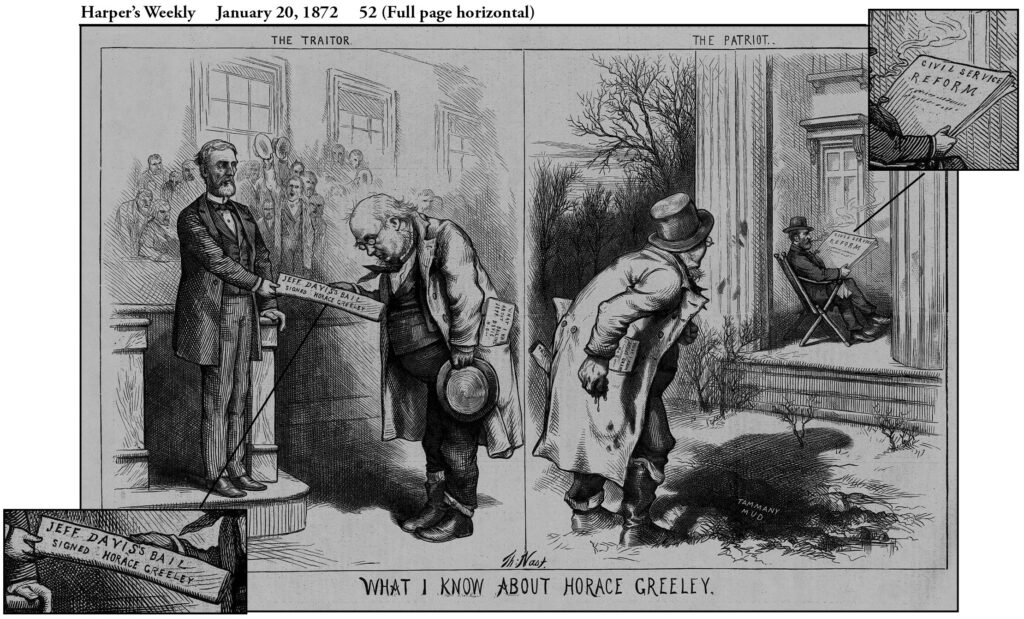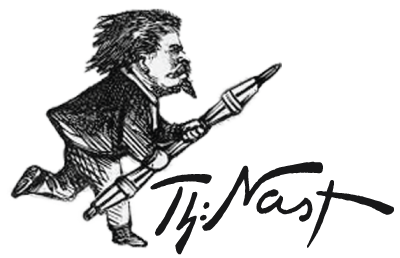
Harper’s Weekly – January 20, 1872
Horace Greeley had owned a 75-acre farm near Chappaqua, 35 miles north of New York City, since 1853. In 1870, he published a book entitled What I Know of Farming. The title was Nast’s springboard. He drew “What I Know About . . .” papers sticking out of Greeley’s pockets in 59 cartoons.
Greeley always had political ambitions. In 1866, Nast depicted him positively when he ran unsuccessfully for Congress, but scorned him the following year when he put up bail for Jeff Davis; for Nast, that was a treasonous act, never to be forgiven. In January 1872, when there were rumors about Greeley wanting to run, he drew a two-panel cartoon, in which he baldly called Davis a traitor, as he aristocratically accepted his bail bond from a humble, bowing Greeley; the paper in Greeley’s pocket read: “What I know about bailing Jeff Davis.” In the adjacent panel, Greeley was about to sling “Tammany Mud” at President Ulysses Grant as he sat on the White House porch reading about Civil Service Reform.
Politically, however, Greeley’s only consistency was flip-flopping. As secession appeared likely after Lincoln’s election, Greeley favored it — comparing it with 1776. After Fort Sumter, he vigorously backed the Union and the war, urging Lincoln “On to Richmond;” then he almost had a nervous breakdown when the Union’s green troops were routed at Bull Run. He was a constant thorn in Lincoln’s side during the war and initiated somewhat deceitful peace negotiations in 1864. After the war, he was a Radical Republican who favored Andrew Johnson’s impeachment.
The Tribune supported Grant in 1868 against Horatio Seymour. The President’s first term’s achievements should have been satisfying to Greeley overall: The 15th Amendment finally passed in 1870, nominally securing suffrage for black men, Greeley’s primary passion; Grant had used his military powers to combat anti-black violence in the Reconstructed South, especially by the Ku Klux Klan; the Amnesty Act pardoned almost all Confederates; the national debt had been substantially reduced; the economy was good; the Alabama Claims were essentially settled; and no major scandals had yet exploded.
